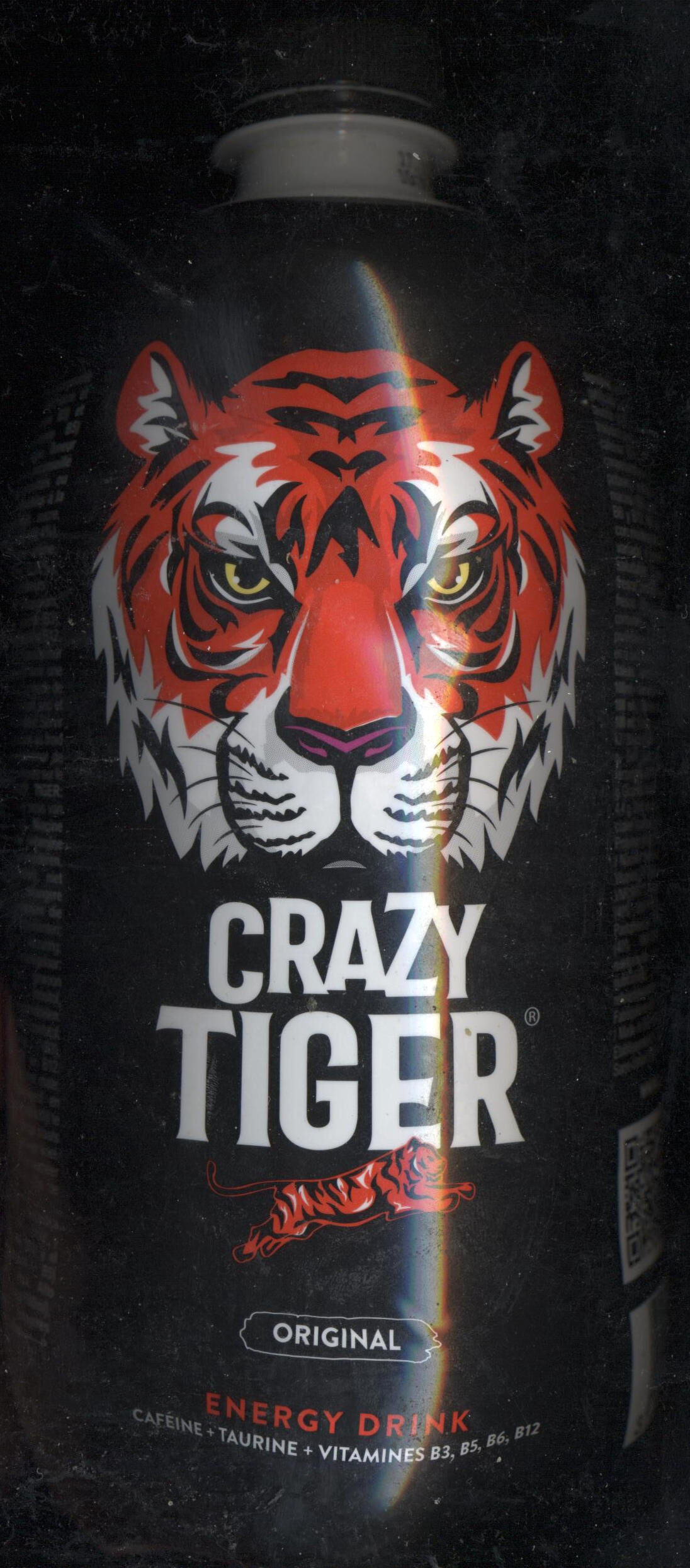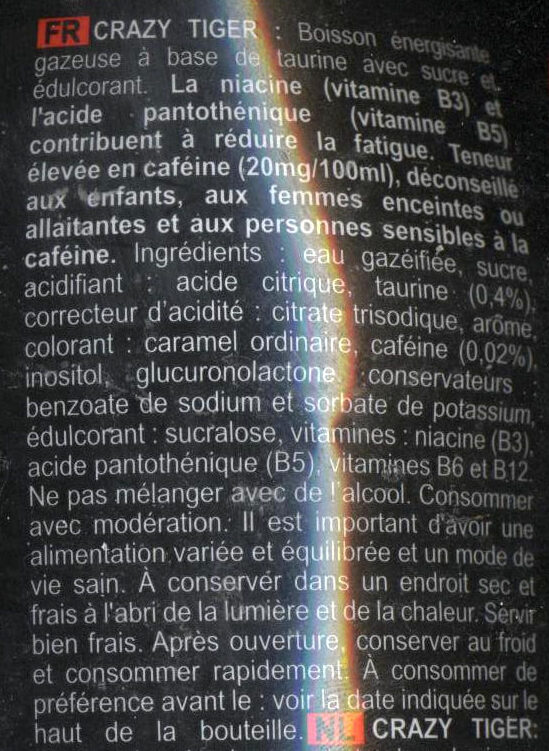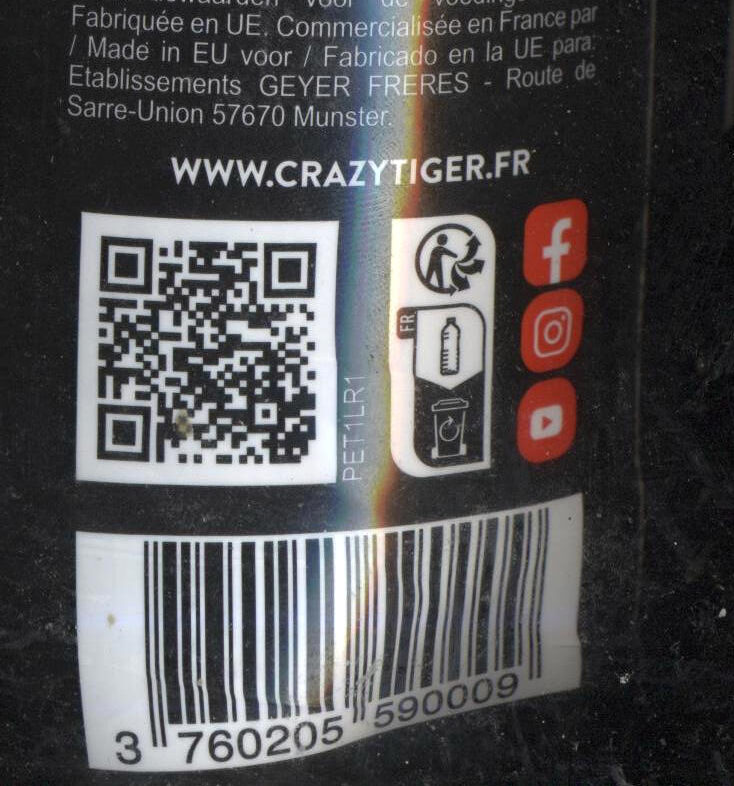Crazy Tiger - Original - 1 L
Barcode: 3760205590009 (EAN / EAN-13)
Common name: Boisson énergisante gazeuse à base de taurine avec sucre et édulcorant
Quantity: 1 L
Packaging: Plastic, Bottle or vial, Bottle
Brands: Crazy Tiger
Categories: Beverages, Carbonated drinks, Artificially sweetened beverages, Sodas, Carbonated soft drinks without fruit juice, Energy drinks, Carbonated soft drinks without fruit juice with sugar and artificial sweeteners, Energy drink with sugar, Sweetened beverages
Labels, certifications, awards:
Triman
Origin of ingredients: Unspecified
Manufacturing or processing places: Union Européenne
Link to the product page on the official site of the producer: https://www.crazytiger.fr
Stores: Auchan, carrefour.fr, Leclerc, Carrefour
Countries where sold: France
Matching with your preferences
Report a problem
Data sources
Product added on by jeanbono
Last edit of product page on by ricard51.
Product page also edited by 3youne, alexfauquette, bugmenot, chiefmixtap, date-limite-app, driveoff, elttor, halal-app-chakib, kiliweb, openfoodfacts-contributors, packbot, quechoisir, roboto-app, skryland, tacite, yuka.FIgZF8GCOdYlHMv3_rsr3jKUSOzCBadoGk5Xog, yuka.I4liANO7IuYuI8KCyYkugBOeCdzGKv5QHFUWoQ, yuka.IbF_BO-XGeUiEPDO3Kg23iOFT-fRI6VUHXcgog, yuka.U0lNalBQVlErK1k0eTg4bjlBNkk2c2xadzVuNWVsMlVCZkU0SUE9PQ, yuka.UmZrQkRvWVBvc0FJc3ZRQTBSZjYwZXAyNDRPWmR6S3djTkUzSVE9PQ, yuka.WmZoZURLa0h2L3NyeDlnVnBpenNwZlJuNThEMVVVbTlNL0lXSVE9PQ, yuka.ZW9BOU02QUlyZG9ZcHRvaXpDMkoyNHd1bXJxamZYeTBHOFlQSVE9PQ, yuka.sY2b0xO6T85zoF3NwEKvlkEeQeb4vjT1B0Lui1LR-da_EJ_Ta9R52ojnI6s.












